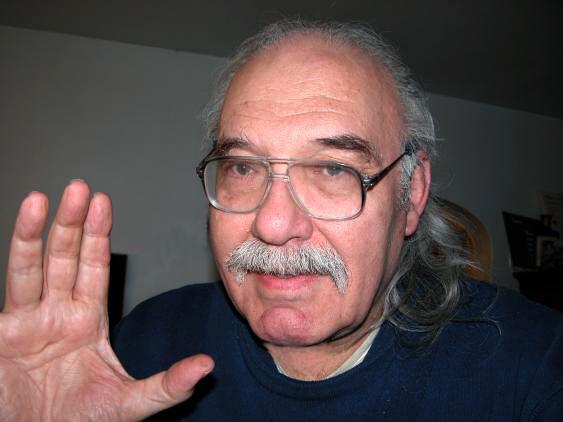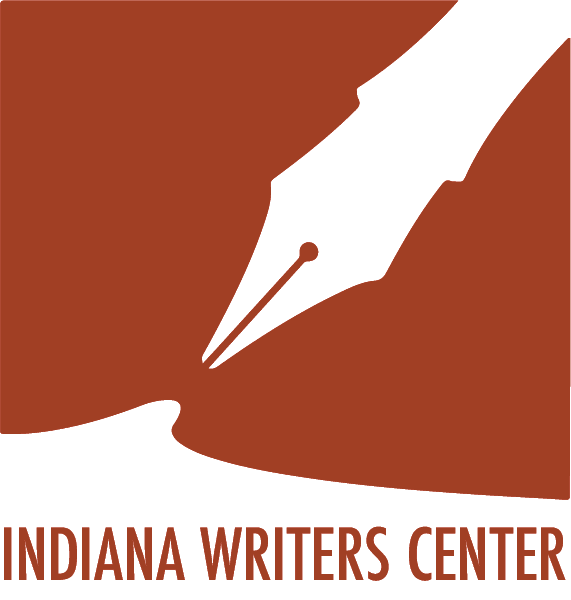
Richard Pflum
The Poetry Salon started approximately thirty five years ago under
a different name and with a different
format. From the beginning The Writers’ Center of Indianapolis, (now The Indiana
Writers Center), had a core of people interested in writing poetry and so
founded various workshops in poetry, both reading and writing. All of these
were of the classic variety where people sat around a table while manuscripts
were passed in a circle to everyone in the class. There was usually a teacher
or moderator,
(the teacher sometimes knew just a little more than his
students) and he/she ran the class by making sure everyone got a chance to read
his or her poem(s) along with encouraging commentary and criticism from others in the
group. These criticisms were aimed at improving the style and quality of the
writing. Of course the quality of the criticism itself depended largely on the
sophistication and experience of the group as a whole. There was no attempt to
make moral judgments about the content of a poem or to make pronouncements
regarding form, rhyme, or lack thereof. What was encouraged was the making of
an effective metaphor and the right word choice and also the reading of poetry,
both classical and modern so that William Blake or A. E. Housman might be read in
one breathe and W. S. Merwin or Wallace Stevens, or Sylvia Plath might be read
in the next. If a person had nothing new of their own to contribute at some
particular meeting one might read one of his or her favorite poems by someone else and the group could
comment upon that.
The Poetry Workshop from which the Poetry
Salon derived was run by Kevin Corn and Richard Pflum from a previous program
which was started by Thomas Hastings. Under the Korn-Pflum régime it was
decided there would be no term limit and that the workshop should continue as
long as there was life left in it. Later Korn decided to go back to school to
earn his PhD in religious studies. This left Pflum running the show on his own
until Rohanna McCormack agreed to join him and help. Over the years Pflum began
to feel that a workshop in the old fashioned sense lacked a certain kind of
freedom. He thought of the kind of salon that Gertrude Stein had run in Paris
after the first World War. This salon was a kind of space where artists of
every variety met and enriched each others’ art by conversation and by the
exhibiting of their work. He thought that maybe the salon would still have to
be primarily about poetry but he might be able to encourage artists in other
fields to show up and talk about their work. Alas, this was not to be the case
for Pflum soon discovered, that like birds, American artists like to hang out
with their own kind. Pflum should have known better for most poets behave in
exactly the same way: street poets hang out with street poets, slam poets hang
out with slam poets, ethnics with ethnics, academics with academics, and so it
goes. What he was able to do with his original idea was to encourage
participants to speak more freely about their other interests. To talk
tangentially about such diverse subjects as baiting a hook for walleye or chaos
theory and Mandelbrot figures, to atonal music of the New Vienna School in the
1930’s, to “Delbert” or “Peanuts”, or even about the detritus in their own everyday
lives, when a lone strident voice might pipe up from the table, “ when are we
going to start talking about our own poetry?” There is a continuing pressure to
run the Salon more like a University Workshop where we must stick to the
subject and we all must have equal time to discuss our work. Pflum would like
to think that the Salon experience might be more of an aesthetic adventure
rather than a place where one merely seeks tools so that one writes better.
Writing well might be the bottom line but gaining an outlook so that language
becomes one of our principal passions along with those metaphoric procedures that
might be used by an author to make up both a singular and imaginative world; worlds
in which many questions might be asked. We must understand that complete answers
are timeless and unattainable and might only be answered in a provisional way
or in the production of more questions, depending on: where we are, when we are,
and who we are when we ask. It is the questions which are important and
profound. Off the top of his head Pflum has made a list of some example
questions which might serve as meager stepping stones an artist might use in
trying to make something of real value:
How should we live so that our life
maintains the best of what
it means to be human?
How may we walk in a fallow field
and see the green?
How shall we look in the night sky and
see a living day??
What shall we listen for, on a
windy day?
How many times must we repeat our
mistakes before we know?
How may we let silence enrich our conversation
or our writing?
How shall we live in our favorite
season and make all seasons
our favorite?
How shall we know if we should make
a garden or a poem?
How may we attain the joy and
sadness of pure empathy?
How can we compete and win without
any desire for winning?
How shall we know when something within
ourselves or our writing is broken?
How may we take the broken parts of
ourselves or of our writing
and fuse them back into a whole
thing?
How can the ambiguity of language
itself enable us to discover
some kind of truth.
How shall we make our life into
metaphor and metaphor into our life?
How may we distill the profound out
of the merely adequate?
How can we become rich in insight,
if not within our own experience?
How may we retain our own
singularity and yet be part of the whole?
The Poetry Salon meets the 1st
and 3rd Tuesdays of the month at 8PM somewhere at the The Indiana
Writers Center in the Cultural Complex Bldg. behind (North of) the Indianapolis Arts Center. (Listen for raucous laughter and stressed
voices in order to find the room.) All are welcome.
